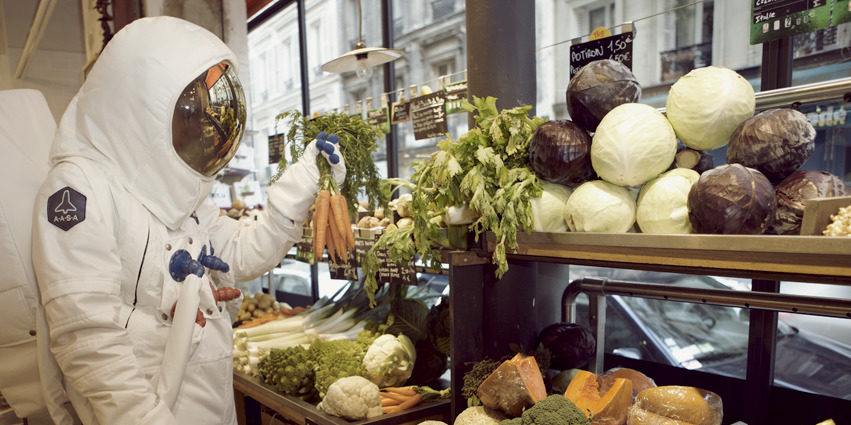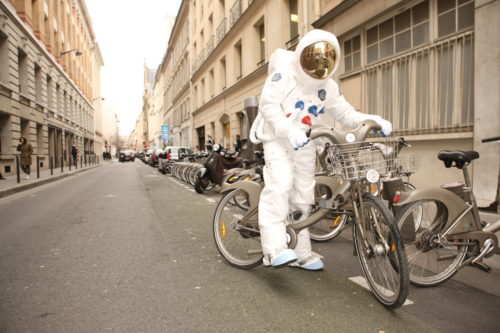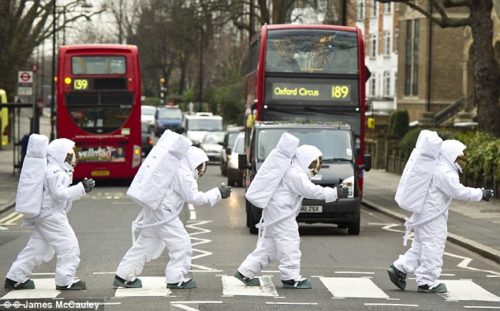
It seems like these days we get to do many things (or not do things) in the name of COVID-19. Sometimes I struggle to even see the correlation between COVID and the action it is excusing. For example, I could probably say something like, “Oh, I’m sorry I didn’t call you back … you know, all this COVID stuff, ugh!” and that person would be completely understanding. The government, businesses, and individuals use this pandemic to explain any difference in behavior or policy, and it is all in the name of the greater good.
As citizens it is very different for us to be told where we can and cannot shop, which businesses are essential, where our children can learn or play, and how many people we can have over to our houses. Shoppers are told when they can enter the building, where they can stand, which direction they should walk down the aisle, and how many of a certain item they can purchase. Services that at one time were guaranteed to the customer are now explained away by COVID: there may be longer wait times to speak to a credit card representative, Amazon cannot fulfill their “next day” service that Prime members used to enjoy, and dressing rooms are not available at clothing stores (but you’re welcome to purchase items and return them if they don’t fit — how thoughtful, thank you, TJ Maxx!).

These restrictions that we are all living under these days may be in our best interest, but there’s no escaping what it actually is: control. And to be fair, it does make sense to exercise a certain amount of public control in order to get a worldwide virus under control. But even when it is understandable, it still feels oppressive.
“Corona control” has affected not only the public life but also private relationships. An article posted in June on Buzzfeed told a story of a divorced mom who said her ex was using the social distancing measures (in the form of a “social distancing contract”) to control her and her kids. According to lawyers, this has been happening a lot. Separated parents in some cases have had to “adjust their legal agreements and adopt a pandemic parenting plan,” according to Katherine Miller, a New York divorce attorney and founder of Miller Law Group. “What seemed ‘overcontrolling’ might be appropriate,” said Miller. “What seemed ‘appropriate’ might be reckless these days. We really don’t know”.
Isn’t it refreshing to hear someone say those rarely-spoken words? “We really don’t know.” No matter what your stance is politically, none of us really knows the best way forward in the face of this pandemic. We all struggle to decide on the most caring and loving course of action, and I believe that all sides want to protect life. From all of these examples in both public and private life, it is clear that we are living in a very burdensome time. We are all striving for the preservation of life and the greater good.
All of this talk of decision-making and the greater good has me taking a step back and asking a larger question: what is the greatest good and what is our ultimate goal in life? Is the goal to preserve our lives as long as possible? Is it to preserve as many lives for as long as possible in the world? I am not putting down the idea of prioritizing life over death, but how many villains in movies have you heard use this exact argumentation? Preserving life, for themselves or for the masses — this ultimate goal justifies all kinds of evil.
Or maybe the ultimate goal is quality of life. This could lead us to the argument that we shouldn’t have any restrictions at all. Even if it means a shorter life, at least we’ll be happy. The pursuit of happiness is a virtue our country values, but is that the end we seek?
I’m not sure either of these extremes is the answer. So if it’s not preserving life or striving for quality of life, then what is it?

Some weeks ago, my kids were playing outside, and a neighbor came by to invite them to her yard for a sprinkler party. So my kids got changed into their suits, and we walked over. This was the first time I had met this particular neighbor, and as we approached their yard the little girl’s mother walked out to welcome us and introduce herself. She seemed eager to meet us and have new friends for her daughter to play with. She held out her hand to shake mine, and I replied, “Nice to meet you! I’m sorry, normally I would shake hands, but with the coronavirus and all of that …” and she immediately did a face-palm and said, “Oh yeah! I’m so sorry, I was not even thinking!”
Since that day I have replayed that scene in my head hundreds of times. At first I kept thinking, “I can’t believe she forgot that we’re supposed to be socially distant and not have any physical contact, especially with our hands!” Soon I started to challenge my own thinking while still trying to justify myself: “I mean, I guess I could have just washed my hands when I got home, but I was just following the rules. What’s the point of putting all of this effort into quarantining if we’re not going to follow the rules all of the time?” And finally I reached a crushing feeling of conviction: “I cannot believe that I rejected that woman’s hand being offered to me.” But really, what was the most loving thing to do?
If you’ve been in similar situations, I am not prescribing what all people should do when someone offers to shake hands. But for me, on that day, I feel that I may have put my own “self-preservation” before the feelings of another person. I put health and safety before love.
God has given us these bodies, and He does not want us to harm them. But when I read the Bible, I do not see health and safety as God’s ultimate goal for His people. There are countless examples of His preserving life, such as Moses and the Israelites walking on dry ground through the Red Sea, water springing from a rock in the desert, manna coming down from heaven, Daniel in the lion’s den, an angel bringing food and water to Elijah in the wilderness, etc. In all of these examples and countless others, it is God who is doing the preserving — He gives life and takes it away (see Deut 32:39, Job 1:20-21).

Jesus did not make his own health and safety a top priority but rather made it clear that he was giving up his life willingly. He told his disciples, “No one takes [my life] from me, but I lay it down of my own accord. I have authority to lay it down and authority to take it up again. This command I received from my Father” (Jn 10:18). The chief-priests and teachers of the law mocked Jesus while he was hanging on the cross. “He saved others,” they said “but he can’t save himself!” (Mk 15:31). They did not understand Jesus’ ultimate goal, which was not self-preservation but rather self-sacrifice for the sake of others.
I cannot give a prescription or judgment about how we should move forward or make decisions during this pandemic. I am not an epidemiologist, a politician, a business owner, or anything that makes me an expert. And I am not advocating a revolution for or against regulations. But as a follower of Christ, I do wonder if we should consider taking a step back to ask God what His goal is for our lives, even in the midst of a pandemic that threatens our health and lives. St. Paul addresses this when he says, “I press on toward the goal to win the prize for which God has called me heavenward in Christ Jesus” (Phil 3:14).
What is the prize Paul is referring to? He explains it further by first lamenting that some “live as enemies of the cross of Christ,” and have their minds “set on earthly things,” while “our citizenship is in heaven.” During this life we eagerly await our Lord Jesus Christ who has the power to “bring everything under his control.” Our prize is that, despite the sickness and death that control this world, he will “transform our lowly bodies so that they will be like his glorious body” (vv. 18-21).
This section in Philippians reminds me that God’s ultimate goal for us is beyond earthly things. It is to live for him and with him forever. The weight and burden of living solely for the purpose of staying alive is removed by Jesus through his self-sacrifice on the cross. For this we thank our God, who is himself the “greatest good.”

COMMENTS
Leave a Reply












